THE BREAKFAST CLUB (1985)
Five high school students meet in Saturday detention and discover they have a lot more in common than they thought.
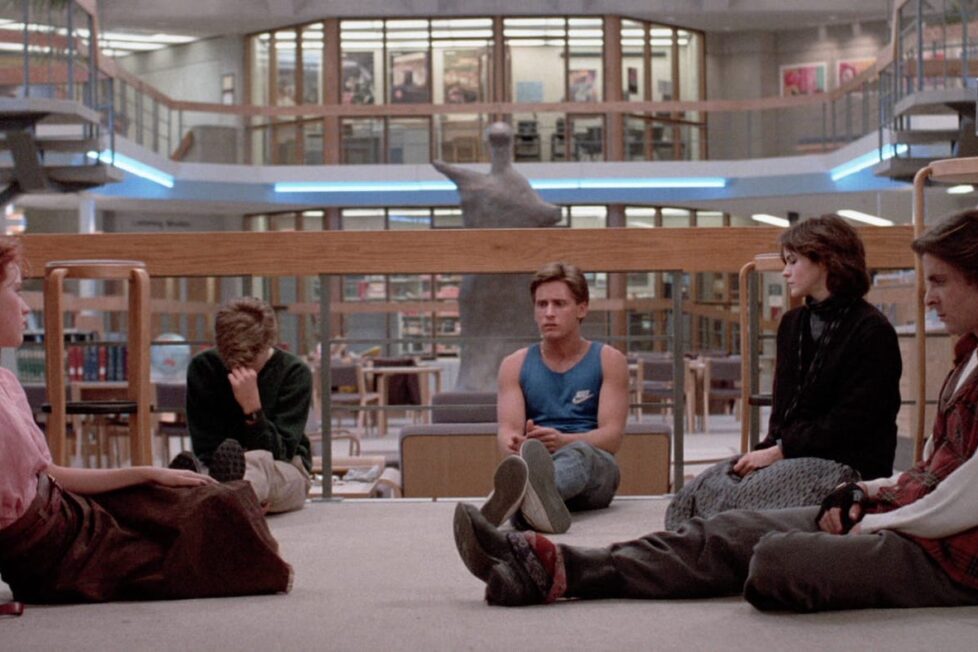
Five high school students meet in Saturday detention and discover they have a lot more in common than they thought.


It may seem difficult to imagine today, but writer-director John Hughes completely changed the industry’s perception of adolescence during the 1980s. His early work as a screenwriter and director tastefully balanced the brutal reality of adolescence with magical realism. Hughes began his career writing for National Lampoon magazine before turning his hand to screenplays that included Mr. Mom (1983) and National Lampoon’s Vacation (1983). The Breakfast Club was originally intended to be his feature-length debut as a director, but while waiting for financing he wrote a screenplay for Sixteen Candles (1984) and an impressed producers offered Hughes a deal to direct both pictures, provided he made Sixteen Candles first. And while that film wasn’t a big hit, it established Hughes’ credibility as a filmmaker; and so, fully armed with an understanding of how sensitive teenagers were, he followed Sixteen Candles up with the more successful Breakfast Club.
Taking place on Saturday, March 24, 1984, five students at Shermer High School report for an all-day detention in the school library. While not complete strangers, the five all come from different, clearly defined social groups: Andrew Clark (Emilio Esteves) is “The Athlete”, Brian Johnson (Anthony Michael Hall) is “The Brain”, Claire Standish (Molly Ringwald) is “The Princess”, Alison Reynolds (Ally Sheedy) is “The Basket Case”, and John Bender (Judd Nelson) is “The Criminal”. The students begin the day with no commonalities, but bond when faced with the school’s disciplinary principal, Mr Vernon (Paul Gleason). So after being assigned to write a self-reflecting essay, the teenagers realise they have more in common than they may think…
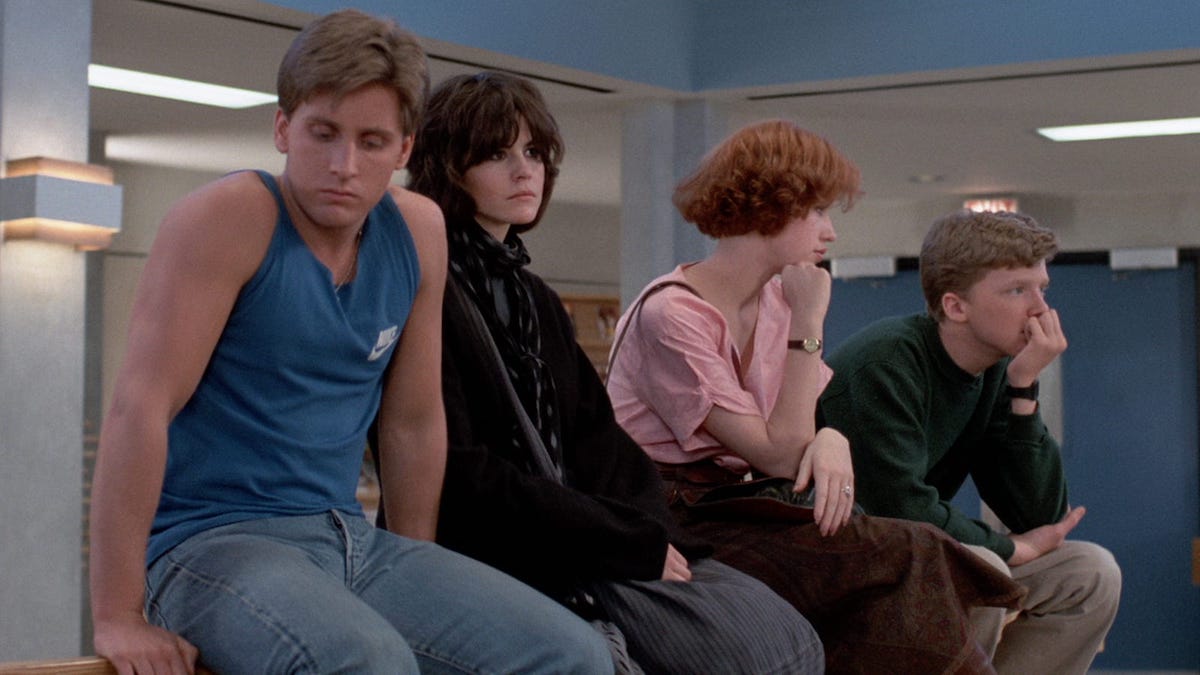
One of the resounding reasons why The Breakfast Club is so fondly remembered is down to the performances. After charming audiences in Sixteen Candles, Molly Ringwald delivers an equally strong performance here by revealing the shallow side of being popular. As Claire, she’s the cosseted popular girl that brings sushi for dinner, but she also brings emotional layers to a character who could’ve easily been played as just superficial. Although she’s initially disparaging and simple-minded, Ringwald opens up a dimension of endearing vulnerability in Claire. Similarly, Anthony Michael Hall is delightful as anxious honour student Brian, who has trouble escaping from his stereotypical sinkhole and is unhappy being significantly less popular than the other detainees. However, the young actor’s painfully observed performance hits the hardest and will stay with audiences long after the credits roll. Ringwald and Hall would continue collaborating with the director starring in Ferris Bueller’s Day Off (1986) and the aforementioned Weird Science (1985).
Additionally, Emilio Estevez (Young Guns) delivers an intensely physical performance reminiscent of his famous father. He does a good job presenting the human side of the athlete on a pedestal. Ally Sheedy (Short Circuit) is also appealing as the suitably eccentric outcast, but the character who dominates the screen more than anybody else is Judd Nelson (St. Elmo’s Fire) as troubled student John Bender. Like an ‘80s rendition of James Dean in Rebel Without A Cause (1955), his flawless portrayal made his character one of the most recognisable delinquents in cinema history. The malcontent provocateur relishes the opportunity to chews up the scenery. He gets some of the funniest lines (“does Barry Manilow know that you raided his wardrobe?”) and his ongoing war with Principal Vernon is particularly entertaining. However, it’s not his bravado that’s impressive, but the twinge of remorse that flickers across Nelson’s face during any moments of fury. Underneath his various layers of clothing and rebellious clothes exterior is a fragile teenager frustrated by his lack of restraint.
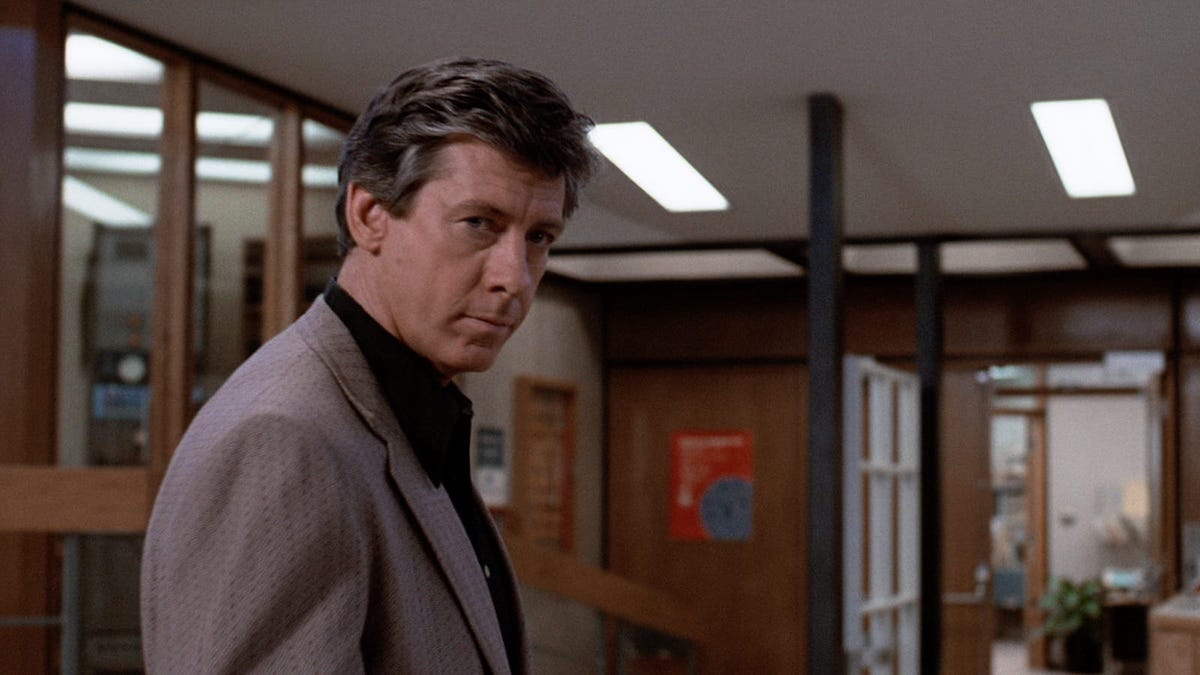
Consistent with Hughes’ structural style, the opening sequence familiarises the audience with the five individuals about to spend an entire Saturday in detention. Brian recites the letter he has composed on behalf of his classmates over deadpan tableaux of Shermer High School’s deserted hallways. Highlighting the suffocating feeling of being perceived as a stereotype, he says “You see us as you want to see us, in the simplest terms with the most convenient definitions”. The teens are introduced outside the parking lot before detention: Claire pouts in a BMW when her father tells her that he can’t get her out of her obligation; Brian’s mother acts ashamed and infantilising towards him; Andrew endures a guilt trip from his dad; Bender travels on feet almost being struck by the car driving; and Alison exits her vehicle and her parent drives away without even looking at her. Once the characters enter the library, they sit down according to preconceived notions of each other. It’s a remarkable piece of storytelling that sets the rebellious attitude and subtly establishes each character’s stereotype and social group.
The Breakfast Club is very different compared to most entries into what was once a burgeoning genre. Unlike his contemporaries, John Hughes’ greatest gift as a screenwriter and director was understanding the emotionally inconsistent state of being a teenager. The teen comedies that preceded The Breakfast Club frequently depicted young people as aberrant party animals seeking to lose their virginity. However, Hughes’ script is smarter and more perceptive, perfectly portraying the turmoil and loneliness of adolescence. While Porky’s (1981) and The Last American Virgin (1982) thrived on juvenile pranksters and promiscuous fiends, Hughes fashioned his characters into conscientious adolescents who could honestly articulate their emotions. After the students spend time getting to know each other, they eventually realise their supercilious social status is what divides them. While the athletic wrestler may not appear to have any similarities with the honour student, they’re both besieged with parental pressure. Similarly, Claire’s insecurities are caused by her enormous popularity and her parents’ impending divorce. And Alison is starved of attention while Bender is being physically abused. Their precarious commonalities stretch beyond their social status and are rooted in their shared animosity towards their parents. In realising this, they’re forced to recognise those who are seemingly different are actually most alike. Without adhering to cliches and focussing on the emotional core, Hughes speaks to something universal. He perfectly captures the harrowing attitudes and trepidations of youth with such sincerity and authenticity. These themes eventually became a staple in the filmmaker’s work as he continued to examine teenage identity and class hierarchical systems in Pretty In Pink (1986) and the overlooked Some Kind of Wonderful (1987).
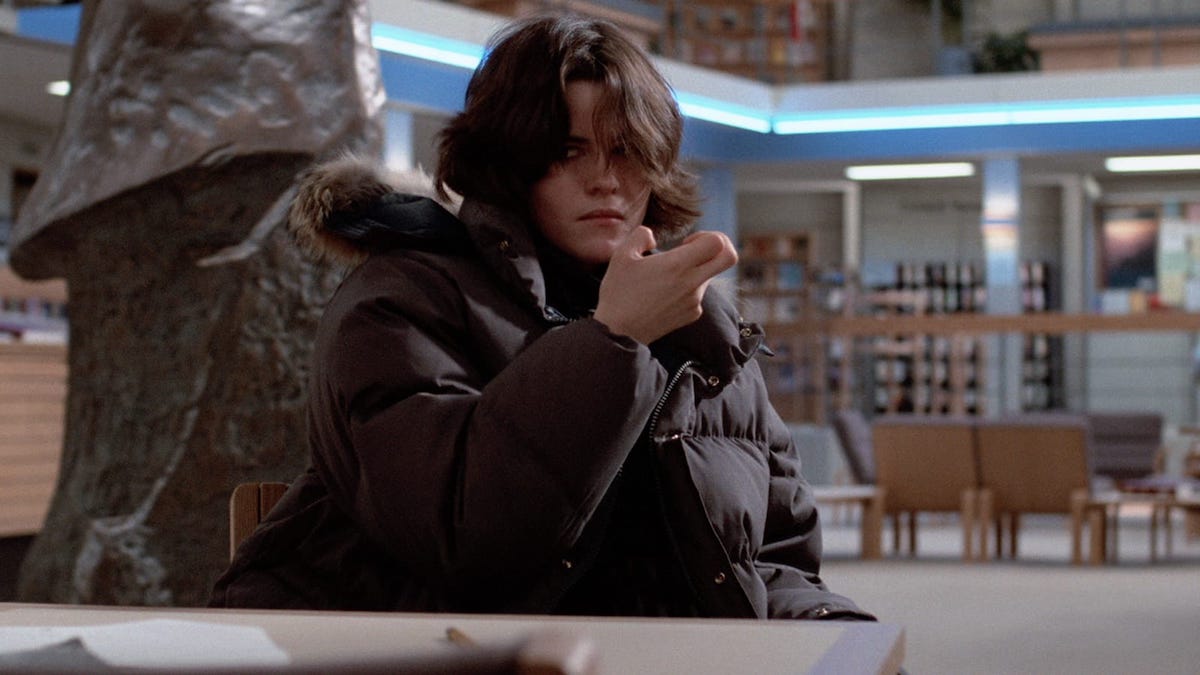
This sensitivity is what makes The Breakfast Club connect with the audience on an emotional level decades later. Hughes never condescends to teenagers and this respect was reciprocated by the cast. He simply allowed them to be themselves. Unfortunately, this generated episodes of petulance, humiliation, and anarchy during production. Nelson’s extreme antics frequently irritated his peers. Ringwald stated that “Judd was trying to get under my skin, ad-libbing a lot of stuff that was meant to be offensive to me.” However, it occasionally led to moments of exquisite elegance. Hughes left the emotional confession scene largely unscripted. He wanted the moment to feel authentic and allowed his cast to improvise the reason for their characters having detention. While this moment reveals their motivations, the cast’s improvisation is what makes the scene so emotional. It provides them with depth and allows them to relate to each other in an environment outside of the social confines of school. As Andrew says to the group, “we’re all pretty bizarre. Some of us are just better at hiding it, that’s all.”
It’s hard to deny the iconic status The Breakfast Club has achieved… but it’s not without flaws. Upon viewing it through a contemporary lens, a wellspring of conversation bursts from its subject matter. One of the most controversial aspects is the portrayal of Bender and Claire’s romantic relationship. One scene that was questionable even in the ‘80s hasn’t stood the test of time and remains utterly inappropriate. After Principal Vernon leaves the library, Bender says to Andrew “hey, homeboy. What do you say you close that door and we’ll get the prom queen impregnated?” This is an incredibly low point and will undoubtedly make modern viewers uncomfortable. However, the ugliness doesn’t end there. When Bender’s not sexualising Claire, he takes out his on her with vicious contempt by calling her “pathetic.” This constant harassment is something that shouldn’t be overlooked. In 2018, Ringwald herself stated in an article for The New Yorker that she was aware of how inappropriate much of Hughes’ writing was, but it was considered normal at the time.
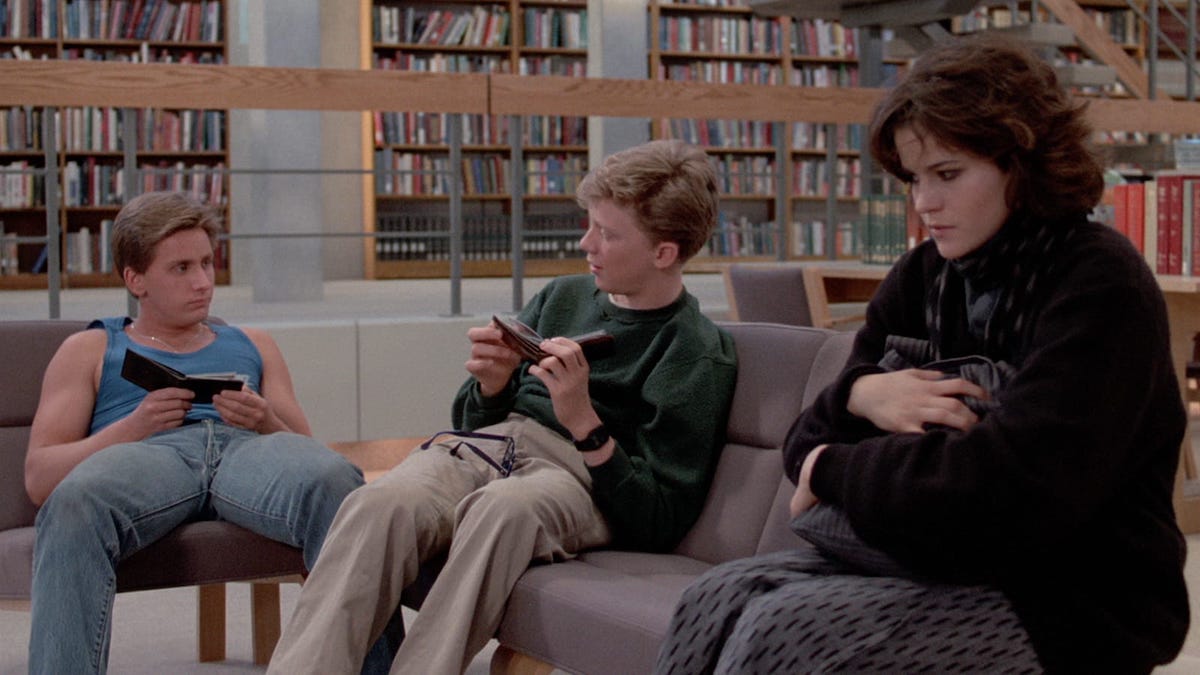
While these moments may potentially hinder the film’s emotional impact, it doesn’t ruin the overall strength of The Breakfast Club. Ringwald also stated in the same article that “John wanted people to take teens seriously, and people did. The films are still taught in schools because good teachers want their students to know that what they feel and say is important.” The Breakfast Club is a reminder that every director makes mistakes and it was a voice reflective of the culture at the time. It was perhaps inevitable that Hughes would lean into his National Lampoon-style humour and incorporate certain types of jokes that were once trendy. Given this was only his second feature, perhaps it was required to give the audience what they expected from the genre. Regardless, to acknowledge the imperfections is to acknowledge how far we have come regarding what we now see as acceptable. All we can do is move forward and learn from past mistakes and make sure they’re never repeated.
Although The Breakfast Club troubled gender politics remain problematic, it remains an ‘80s classic, alongside Amy Heckerling’s Fast Time at Ridgemont High (1982) and Michael Lehman’s Heathers (1988). It’s arguably one of the greatest high school flicks of the decade. John Hughes delivers a groundbreaking portrait of the desolation and loneliness of adolescence caused by parental pressure and social hierarchy. Very few filmmakers retained access to the volatile teenage psyche but Hughes made something authentic and memorable. This sensitivity is what makes The Breakfast Club connect with the audience on an emotional level and remains relevant almost four decades after its release.
USA | 1985 | 97 MINUTES | 1:85:1 | COLOUR | ENGLISH

The Criterion Collection presents The Breakfast Club on Blu-ray with a remarkable 1080p transfer. Sourced from the brand-new 4K digital restoration of the original 35mm camera negative, it’s presented in its original 1:85:1 aspect ratio. Apparently, this release is sourced from the same master that Universal Studios prepared for the 30th Anniversary Edition from 2015. Although the difference is relatively mild, Criterion’s release is definitely an improvement. Universal’s over-saturated colours created numerous visual discrepancies. However, this disc is well-balanced and boasts natural flesh tones and richer colours. The brightness levels have definitely been improved, displaying inky blacks without losing finer details. The image is much brighter and more saturated which helps the characters stand out against the bland background of the school library and hallways. Flesh tones appear natural and facial complexions appear visible, revealing the tiniest of details such as freckles around Molly Ringwald’s nose beneath her makeup. Minor details such as threading and stitching is sharp. The entire frame is consistently awash in a very fine layer of natural grain, giving the presentation a lovely cinematic quality. Although the picture quality only yields negligible improvements, owners of the previous edition have a reason to purchase this classic once more.
The soundtrack was remastered from the 35mm elements used for the video. Criterion has included an uncompressed PCM 2.0 and an English DTS-HD 5.1 Master Audio track with optional subtitles. Audio purists will be incredibly happy with the 2.0 as it displays excellent clarity without any distortion. However, the two soundtracks are largely similar except for the musical sequences. Like most of Hughes’ features, the ‘80s soundtrack is certainly a highlight. Opening with Simple Minds “(Don’t You) Forget About Me”, the DTS-HD 5.1 Master Audio sweeps the soundstage. The bass is robust and carries appropriate weight and depth. The dialogue remains crisp and clean, anchored primarily at the front channels.

writer & director: John Hughes.
starring: Molly Ringwald, Judd Nelson, Emilio Estevez, Anthony Michael Hall, Ally Sheedy & Paul Gleason.
